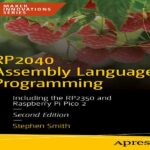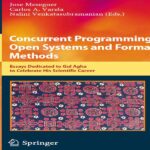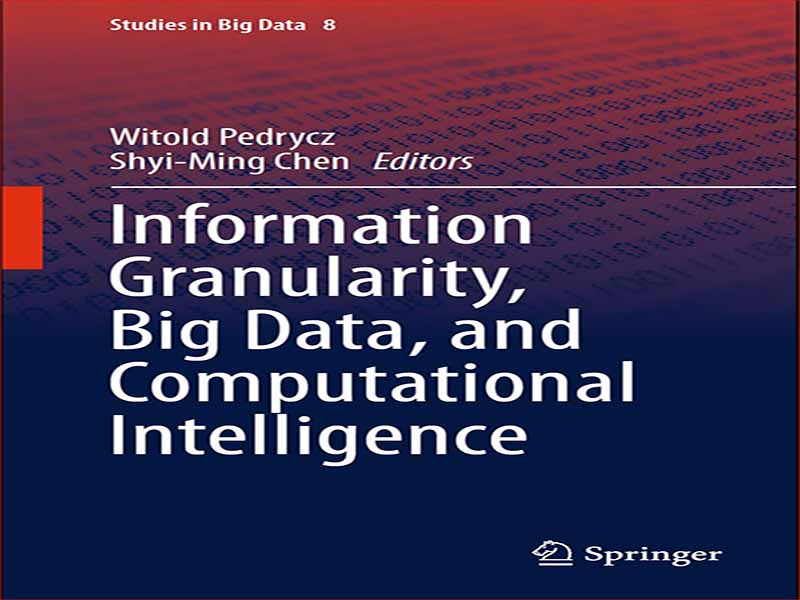- عنوان کتاب: Information Granularity, Big Data, and Computational Intelligence
- نویسنده: Witold Pedrycz
- حوزه: کلان داده
- سال انتشار: 2015
- تعداد صفحه: 444
- زبان اصلی: انگلیسی
- نوع فایل: pdf
- حجم فایل: 8.58 مگابایت
پیگیریهای اخیر در پردازش، تفسیر، جمعآوری و سازماندهی کلان دادهها در بخشهای متعددی از جمله تجارت، صنعت و سازمانهای غیرانتفاعی ظهور کردهاند. مجموعه دادههایی مانند معاملات مشتری برای یک خردهفروش بزرگ، پایش آب و هوا، جمعآوری اطلاعات میتوانند به سرعت از ظرفیت تکنیکها و ابزارهای سنتی تجزیه و تحلیل دادهها پیشی بگیرند. ما شاهد ظهور تکنیک ها و ابزارهای جدید از جمله پایگاه های داده NoSQL، MapReduce، پردازش زبان طبیعی، یادگیری ماشینی، تجسم، اکتساب و سریال سازی بوده ایم. این امر ضروری است که به طور کامل آگاه شویم که وقتی داده های بزرگ رشد می کنند چه اتفاقی می افتد: چگونه آنها استفاده می شوند و کجا شروع به ایفای نقش مهم می کنند. ما همچنین باید از مفاهیم و الزامات تحمیل شده بر تکنیک های موجود و روش های مختلف در حال توسعه کاملاً آگاه شویم. محاسبات نرم که به عنوان مجموعهای از فناوریهای مجموعههای فازی (یا محاسبات دانهای، به طور کلی)، محاسبات عصبی و بهینهسازی تکاملی در نظر گرفته میشود، تعدادی ویژگی منحصربهفرد را ارائه میکند که ممکن است برای توسعه مفاهیم و الگوریتمها برای مقابله با دادههای بزرگ مفید باشد. به طور خاص، ایجاد یک سطح مناسب و کاملاً مشروع از انتزاع با تشکیل دانههای اطلاعاتی معنادار از اهمیت بسیار بالایی برخوردار است. با توجه به حجم عظیم آنها، کلان داده ها ممکن است به پردازش توزیع شده نیاز داشته باشند، جایی که نتایج داده کاوی فشرده که به صورت محلی محقق می شود، پس از آن با هم تطبیق داده می شود و منجر به دانه های اطلاعاتی از نوع بالاتر می شود. محاسبات عصبی که در دانههای اطلاعاتی کار میکند، منجر به انجام وظایف یادگیری قابل انجامتر میشود. محاسبات تکاملی یک چارچوب ضروری برای پشتیبانی از بهینه سازی جهانی ارائه می دهد. در پرتو جنبه ذاتی انسان محور محاسبات دانهای، اصول و عملکرد هوش محاسباتی نقشی حیاتی در تحلیل، طراحی و تفسیر معماریها و عملکرد مکانیسمهای کلان داده ایفا میکند. هدف نهایی ما از این جلد ویرایش شده ارائه مطالب به روز و عمیق در مورد اصول نوظهور، زیربنای مفهومی، الگوریتم ها و عملکرد هوش محاسباتی در تحقق مفاهیم و پیاده سازی معماری داده های بزرگ، تجزیه و تحلیل و به خواننده است. تفسیر و همچنین تجزیه و تحلیل داده ها.
The recent pursuits emerging in big data processing, interpretation, collection, and organization have emerged in numerous sectors including business, industry, and not-for-profit organizations. Data sets such as customer transactions for a megaretailer, weather monitoring, intelligence gathering can quickly outpace the capacity of traditional techniques and tools of data analysis. We have been witnessing an emergence of new techniques and tools including NoSQL databases, MapReduce, Natural Language Processing, Machine Learning, visualization, acquisition, and serialization. It becomes imperative to fully become aware what happens when big data grows up: how they are being applied and where they start playing a crucial role. We also need to become fully become aware of implications and requirements imposed on the existing techniques and various methods under development. Soft Computing regarded as a plethora of technologies of fuzzy sets (or Granular Computing, in general), neurocomputing, and evolutionary optimization brings forward a number of unique features that might be instrumental to the development of concepts and algorithms to deal with big data. In particular, setting up a suitable and fully legitimate level of abstraction by forming semantically meaningful information granules is of paramount relevance. In light of their sheer volume, big data may call for distributed processing, where results of intensive data mining realized locally are afterwards reconciled leading to information granules of higher type. Neurocomputing operating at information granules leads to more tractable learning tasks. Evolutionary computing delivers an essential framework supporting global optimization. In light of the inherent human-centric facet of Granular Computing the principles and practice of Computational Intelligence have been poised to play a vital role in the analysis, design, and interpretation of the architectures and functioning of mechanisms of big data. Our ultimate objectives of this edited volume is to provide the reader with an updated, in-depth material on the emerging principles, conceptual underpinnings, algorithms, and practice of Computational Intelligence in the realization of concepts and implementation of big data architectures, analysis, and interpretation as well as data analytics.
این کتاب را میتوانید از لینک زیر بصورت رایگان دانلود کنید:
Download: Information Granularity, Big Data, and Computational Intelligence




































نظرات کاربران